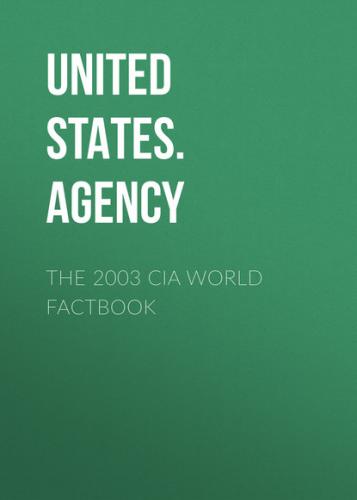Agriculture - products: rice, wheat, oilseed, cotton, jute, tea, sugarcane, potatoes; cattle, water buffalo, sheep, goats, poultry; fish
Exports: $44.5 billion f.o.b. (2001)
Exports - commodities:
textile goods, gems and jewelry, engineering goods, chemicals,
leather manufactures
Exports - partners:
US 22.5%, UK 5.1%, UAE 5.1%, Hong Kong 4.5%, Germany 4.3%, China
4.1% (2002)
Imports:
$53.8 billion f.o.b. (2001)
Imports - commodities:
crude oil, machinery, gems, fertilizer, chemicals
Imports - partners:
US 7.1%, Belgium 6.7%, China 4.6%, Singapore 4.6%, UK 4.6% (2002)
Debt - external:
$100.6 billion (2001 est.)
Economic aid - recipient:
$2.9 billion (FY 98/99)
Currency:
Indian rupee (INR)
Currency code:
INR
Exchange rates:
Indian rupees per US dollar - 48.61 (2002), 47.19 (2001), 44.94
(2000), 43.06 (1999), 41.26 (1998)
Fiscal year:
1 April - 31 March
Communications India
Telephones - main lines in use:
27.7 million (October 2000)
Telephones - mobile cellular:
2.93 million (November 2000)
Telephone system:
general assessment: mediocre service; local and long distance
service provided throughout all regions of the country, with
services primarily concentrated in the urban areas; major objective
is to continue to expand and modernize long-distance network to keep
pace with rapidly growing number of local subscriber lines; steady
improvement is taking place with the recent admission of private and
private-public investors, but, with telephone density at about two
for each 100 persons and a waiting list of over 2 million, demand
for main line telephone service will not be satisfied for a very
long time
domestic: local service is provided by microwave radio relay and
coaxial cable, with open wire and obsolete electromechanical and
manual switchboard systems still in use in rural areas; starting in
the 1980s, a substantial amount of digital switch gear has been
introduced for local and long-distance service; long-distance
traffic is carried mostly by coaxial cable and low-capacity
microwave radio relay; since 1985 significant trunk capacity has
been added in the form of fiber-optic cable and a domestic satellite
system with 254 earth stations; mobile cellular service is provided
in four metropolitan cities
international: satellite earth stations - 8 Intelsat (Indian Ocean)
and 1 Inmarsat (Indian Ocean region); nine gateway exchanges
operating from Mumbai (Bombay), New Delhi, Kolkata (Calcutta),
Chennai (Madras), Jalandhar, Kanpur, Gaidhinagar, Hyderabad, and
Ernakulam; 4 submarine cables - LOCOM linking Chennai (Madras) to
Penang; Indo-UAE-Gulf cable linking Mumbai (Bombay) to Al Fujayrah,
UAE; India-SEA-ME-WE-3, SEA-ME-WE-2 with landing sites at Cochin and
Mumbai (Bombay); Fiber-Optic Link Around the Globe (FLAG) with
landing site at Mumbai (Bombay) (2000)
Radio broadcast stations:
AM 153, FM 91, shortwave 68 (1998)
Radios:
116 million (1997)
Television broadcast stations: 562 (of which 82 stations have 1 kW or greater power and 480 stations have less than 1 kW of power) (1997)
Televisions:
63 million (1997)
Internet country code:
.in
Internet Service Providers (ISPs):
43 (2000)
Internet users:
7 million (2002)
Transportation India
Railways:
total: 63,518 km (15,009 km electrified)
broad gauge: 45,142 km 1.676-m gauge
narrow gauge: 15,013 km 1.000-m gauge; 3,363 km 0.762-m gauge and
0.610-m gauge (2002)
Highways: total: 3,319,644 km paved: 1,517,077 km unpaved: 1,802,567 km (1999 est.)
Waterways:
16,180 km
note: 3,631 km navigable by large vessels
Pipelines:
gas 5,798 km; liquid petroleum gas 1,195 km; oil 5,613 km; refined
products 5,567 km (2003)
Ports and harbors:
Chennai (Madras), Cochin, Jawaharal Nehru, Kandla, Kolkata
(Calcutta), Mumbai (Bombay), Vishakhapatnam
Merchant marine:
total: 305 ships (1,000 GRT or over) 5,753,279 GRT/9,621,911 DWT
ships by type: bulk 100, cargo 82, chemical tanker 15, combination
bulk 2, combination ore/oil 2, container 10, liquefied gas 10,
passenger/cargo 5, petroleum tanker 75, roll on/roll off 1,
short-sea passenger 2, specialized tanker 1
note: includes some foreign-owned ships registered here as a flag of
convenience: China 1, UAE 10, UK 1 (2002 est.)
Airports:
334 (2002)
Airports - with paved runways: total: 232 over 3,047 m: 14 2,438 to 3,047 m: 47 914 to 1,523 m: 73 under 914 m: 20 (2002) 1,524 to 2,437 m: 78
Airports - with unpaved runways: total: 102 2,438 to 3,047 m: 3 1,524 to 2,437 m: 9 under 914 m: 48 (2002) 914 to 1,523 m: 42
Heliports: 19 (2002)
Military India
Military branches:
Army, Navy (including naval air arm), Air Force, Strategic Nuclear
Command (SNC), Coast Guard, various security or paramilitary forces
(including Border Security Force, Assam Rifles, Rashtriya Rifles,
National Security Guards, Indo-Tibetan Border Police, Special
Frontier Force, Ladakh Scouts, Central Reserve Police Force, Central
Industrial Security Force, Railway Protection Force, Defense
Security Corps, and Indian Reserve Battalions)
Military
